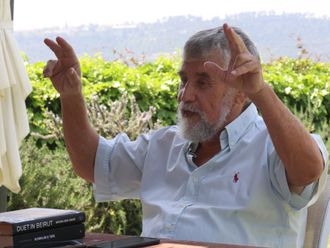Rome: The family of Giulio Regeni, an Italian doctoral student murdered in Cairo, have denied reports that he may have been working for Italian intelligence services.
In a statement issued through a lawyer, the family said it “denies categorically and unequivocally that Giulio was an agent or collaborator of any secret service, Italian or foreign”.
“Attempts to give credit to theory that Giulio Regeni was working for any intelligence service offend the memory of a young university student who had made field research a legitimate ambition of study and life.”
Italian media have speculated that Regeni, whose battered body was found in ditch on Cairo’s western outskirts on February 3 with signs of torture may have been working for the Italian foreign intelligence service AISE.
Regeni, a 28-year-old Cambridge University PhD student vanished on his way to a birthday party in downtown Cairo on January 25, the fifth anniversary of the 2011 uprising that ended President Hosni Mubarak’s 30-year rule.
He disappeared during a crackdown by the Egypt government on dissent with police out in force and detaining activists and warning against demonstrations.
They focussed on central Cairo, focal point of the original uprising.
The Egyptian government denies that security forces were behind Regeni’s murder — as many in Italy suspect — or that they were responsible for arbitrary arrests, torture and disappearances and says such claims are “distorted”.
Regeni’s research focussed on trade union activity in Egypt after Mubarak’s overthrow — a sensitive topic in recent years — and had written articles critical of president Abdul Fattah Al Sissi’s government.
A left-wing Italian newspaper after Regeni’s death said that he had written articles from Egypt under a pseudonym.
In the last one, published posthumously, Regeni criticised the lack of democracy in Egypt under Al Sissi.
Outraged academics have signed online petitions demanding an impartial investigation into Regeni’s death.












